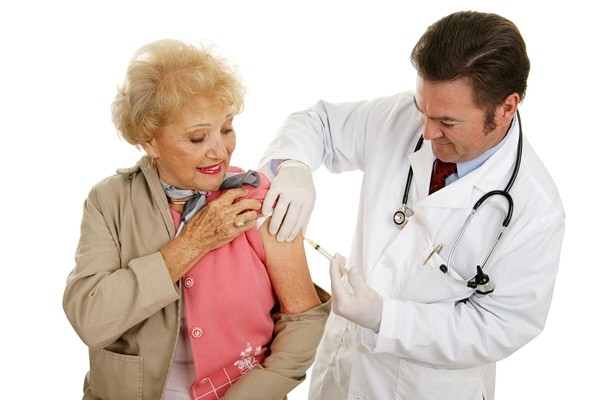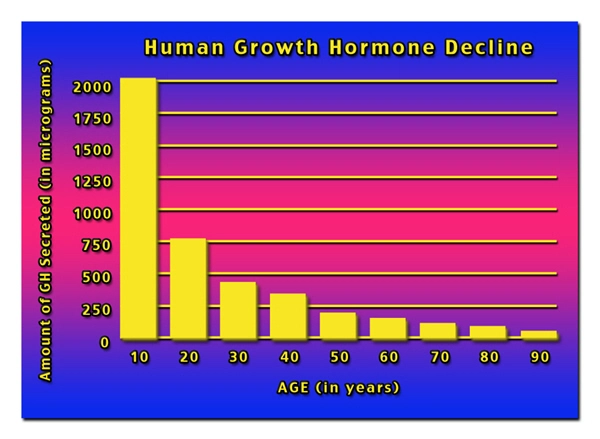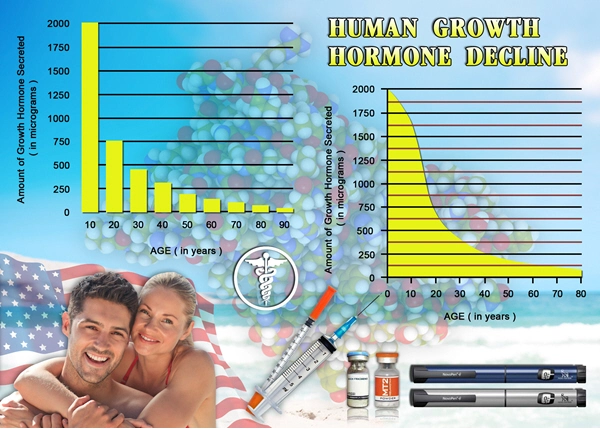Introduction
Erectile dysfunction (ED), often characterized by soft erections, is a prevalent concern among American males, impacting their quality of life and self-esteem. While numerous factors contribute to ED, obesity has emerged as a significant risk factor. This article explores the intricate relationship between obesity and soft erections and underscores the importance of weight management in improving sexual performance.
The Obesity Epidemic and Its Impact on Sexual Health
Obesity, a condition characterized by excessive body fat accumulation, has reached epidemic proportions in the United States. According to the Centers for Disease Control and Prevention (CDC), over 40% of American adults are obese. This alarming statistic not only poses risks for chronic diseases such as diabetes and heart disease but also significantly affects sexual health.
Research has consistently demonstrated a strong correlation between obesity and ED. A study published in the Journal of Sexual Medicine found that obese men are 30% more likely to experience ED compared to their non-obese counterparts. The mechanisms underlying this association are multifaceted, involving hormonal imbalances, vascular dysfunction, and psychological factors.
Hormonal Imbalances and Their Role in Soft Erections
Obesity often leads to hormonal imbalances that can contribute to soft erections. Excess adipose tissue can increase the conversion of testosterone to estrogen, leading to a decline in testosterone levels. Low testosterone is a known risk factor for ED, as it plays a crucial role in maintaining libido and erectile function.
Furthermore, obesity is associated with insulin resistance and type 2 diabetes, both of which can further exacerbate hormonal imbalances. Elevated insulin levels can lead to increased estrogen production, further reducing testosterone levels and contributing to ED.
Vascular Dysfunction: A Key Player in Obesity-Related ED
Another critical mechanism linking obesity to soft erections is vascular dysfunction. Obesity is a major risk factor for atherosclerosis, a condition characterized by the buildup of plaque in the arteries. This can lead to reduced blood flow to the penis, making it difficult to achieve and maintain an erection.
Additionally, obesity is associated with endothelial dysfunction, which impairs the ability of blood vessels to dilate properly. This can further compromise penile blood flow, contributing to ED. A study published in the International Journal of Impotence Research found that obese men with ED had significantly higher levels of endothelial dysfunction compared to non-obese men with ED.
Psychological Factors and the Obesity-ED Connection
The relationship between obesity and ED is not solely physiological; psychological factors also play a significant role. Obesity can lead to decreased self-esteem and body image issues, which can contribute to performance anxiety and sexual dysfunction. The stress and depression associated with obesity can further exacerbate ED, creating a vicious cycle that can be challenging to break.
The Transformative Power of Weight Management
Despite the complex interplay of factors contributing to obesity-related ED, weight management offers a promising solution. Losing weight can lead to significant improvements in sexual function by addressing the underlying physiological and psychological factors.
A study published in the Journal of Urology found that obese men who lost at least 10% of their body weight experienced significant improvements in erectile function. Weight loss can help restore hormonal balance, improve vascular health, and boost self-esteem, all of which can contribute to enhanced sexual performance.
Practical Strategies for Weight Management
Achieving and maintaining a healthy weight requires a multifaceted approach. A balanced diet rich in fruits, vegetables, lean proteins, and whole grains can help promote weight loss and improve overall health. Regular physical activity, including both aerobic exercise and strength training, is also crucial for weight management and can directly benefit sexual function by improving cardiovascular health and reducing stress.
In some cases, seeking professional help from a dietitian or a weight management program can provide the necessary support and guidance for successful weight loss. Additionally, addressing any underlying psychological issues through therapy or counseling can be beneficial in breaking the cycle of obesity and ED.
Conclusion
The link between obesity and soft erections is a pressing concern for American males. By understanding the complex interplay of hormonal, vascular, and psychological factors, men can take proactive steps towards improving their sexual health. Weight management emerges as a powerful tool in this journey, offering the potential to restore erectile function and enhance overall well-being. Through a combination of healthy lifestyle choices and professional support, men can break free from the shackles of obesity-related ED and enjoy a fulfilling sex life.

- A Comprehensive Guide to Understanding Erectile Rigidity: The Labyrinth of Soft Erections [Last Updated On: February 25th, 2025] [Originally Added On: February 25th, 2025]
- The Gradual Decline: Unraveling the Science of Softening Erections [Last Updated On: February 26th, 2025] [Originally Added On: February 26th, 2025]
- Revolutionizing Gender Stereotypes: Mastering Confidence Amidst Soft Erections [Last Updated On: February 27th, 2025] [Originally Added On: February 27th, 2025]
- Reviving Manhood: The Power of Lifestyle Alterations in Enhancing Erectile Potency [Last Updated On: February 28th, 2025] [Originally Added On: February 28th, 2025]
- Unfolding Silent Battles: Personal Narratives of Men Confronting Erectile Dysfunction [Last Updated On: February 28th, 2025] [Originally Added On: February 28th, 2025]
- The Power of the Psyche: A Deep Dive Into the Effects of Psychological Stress on Male Sexual Health [Last Updated On: March 1st, 2025] [Originally Added On: March 1st, 2025]
- Demystifying the Stigma: An Objective Discourse on Erectile Dysfunction [Last Updated On: March 2nd, 2025] [Originally Added On: March 2nd, 2025]
- Enhancing Erectile Function Through Exercise: Understanding the Benefits of Physical Activity for Combating Erectile Dysfunction [Last Updated On: March 3rd, 2025] [Originally Added On: March 3rd, 2025]
- Nutritional Strategies to Enhance Erectile Function and Health [Last Updated On: March 4th, 2025] [Originally Added On: March 4th, 2025]
- From Flab to Firm: The Role of Weight Loss in Enhancing Male Sexual Health [Last Updated On: March 5th, 2025] [Originally Added On: March 5th, 2025]
- Exploring Sleep's Impact on Erectile Function and Male Sexual Health [Last Updated On: March 5th, 2025] [Originally Added On: March 5th, 2025]
- Enhancing Erection Quality: The Role of Meditation and Mindfulness in American Males [Last Updated On: March 5th, 2025] [Originally Added On: March 5th, 2025]
- Understanding and Managing Soft Erections: Causes, Strategies, and Treatments [Last Updated On: March 6th, 2025] [Originally Added On: March 6th, 2025]
- The Impact of Hormonal Balance on Male Sexual Health: Testosterone, Estrogen, and Erectile Function [Last Updated On: March 7th, 2025] [Originally Added On: March 7th, 2025]
- The Crucial Link Between Blood Flow and Erectile Function: Vascular Insights for Men [Last Updated On: March 8th, 2025] [Originally Added On: March 8th, 2025]
- The Interconnection of Health and Erectile Dysfunction: A Holistic Wellness Approach for Men [Last Updated On: March 9th, 2025] [Originally Added On: March 9th, 2025]
- Aging and Soft Erections: Causes, Management, and Support for American Males [Last Updated On: March 10th, 2025] [Originally Added On: March 10th, 2025]
- Debunking Myths: The Truth About Soft Erections in American Men [Last Updated On: March 14th, 2025] [Originally Added On: March 12th, 2025]
- Navigating the Challenges of Drug-Induced Erectile Dysfunction in American Males [Last Updated On: March 13th, 2025] [Originally Added On: March 13th, 2025]
- Mastering Stress: Strategies to Overcome Stress-Induced Erectile Challenges in American Men [Last Updated On: March 15th, 2025] [Originally Added On: March 15th, 2025]
- Understanding Soft Erections: Causes, Impacts, and Treatment Options for American Males [Last Updated On: March 17th, 2025] [Originally Added On: March 17th, 2025]
- Counseling's Role in Managing Soft Erections: A Holistic Approach [Last Updated On: March 17th, 2025] [Originally Added On: March 17th, 2025]
- Vitamins and Minerals: Enhancing Erection Quality and Sexual Health [Last Updated On: March 17th, 2025] [Originally Added On: March 17th, 2025]
- Herbal Remedies for Enhancing Erectile Function in American Males [Last Updated On: March 18th, 2025] [Originally Added On: March 18th, 2025]
- Smoking's Impact on Erectile Dysfunction: Benefits of Quitting for American Men [Last Updated On: March 19th, 2025] [Originally Added On: March 19th, 2025]
- Enhancing Erection Health: Diet, Exercise, Stress Management, and Holistic Wellness Strategies [Last Updated On: March 20th, 2025] [Originally Added On: March 20th, 2025]
- Soft Erections in Young Men: Causes and Effective Solutions Explored [Last Updated On: March 20th, 2025] [Originally Added On: March 20th, 2025]
- Diagnosing Soft Erections: A Comprehensive Guide to Understanding and Managing ED [Last Updated On: March 20th, 2025] [Originally Added On: March 20th, 2025]
- Alcohol's Impact on Erection Quality: Strategies for American Males [Last Updated On: March 21st, 2025] [Originally Added On: March 21st, 2025]
- American Couples Overcoming Soft Erections: Communication, Therapy, and Lifestyle Changes [Last Updated On: March 22nd, 2025] [Originally Added On: March 22nd, 2025]
- Soft Erections and Mental Health: Understanding and Addressing the Connection [Last Updated On: March 22nd, 2025] [Originally Added On: March 22nd, 2025]
- Genetic Factors in Erectile Dysfunction: Insights and Implications for American Males [Last Updated On: March 22nd, 2025] [Originally Added On: March 22nd, 2025]
- Nitric Oxide's Role in Male Erections: Combating Soft Erections in American Men [Last Updated On: March 22nd, 2025] [Originally Added On: March 22nd, 2025]
- Workplace Stress and Its Impact on American Men's Sexual Health and ED [Last Updated On: March 22nd, 2025] [Originally Added On: March 22nd, 2025]
- Behavioral Strategies to Overcome Soft Erections in American Men [Last Updated On: March 22nd, 2025] [Originally Added On: March 22nd, 2025]
- Cardiovascular Health's Impact on Erection Quality: A Comprehensive Guide [Last Updated On: March 22nd, 2025] [Originally Added On: March 22nd, 2025]
- Biofeedback: Enhancing Erectile Control and Addressing Soft Erections in Men [Last Updated On: March 22nd, 2025] [Originally Added On: March 22nd, 2025]
- Exploring Alternative Medicine for Enhancing Erectile Health in American Men [Last Updated On: March 23rd, 2025] [Originally Added On: March 23rd, 2025]
- Pelvic Floor Exercises: Enhancing Erection Quality and Sexual Health in Men [Last Updated On: March 23rd, 2025] [Originally Added On: March 23rd, 2025]
- Embracing Vulnerability: Redefining Sexual Success with Soft Erections [Last Updated On: March 23rd, 2025] [Originally Added On: March 23rd, 2025]
- Physical Therapy: A Promising Non-Invasive Treatment for Soft Erections [Last Updated On: March 24th, 2025] [Originally Added On: March 24th, 2025]
- Economic Impact of Soft Erections on American Men: Costs and Solutions [Last Updated On: March 24th, 2025] [Originally Added On: March 24th, 2025]
- Soft Erections vs. Erectile Dysfunction: Understanding and Treatment for American Males [Last Updated On: March 24th, 2025] [Originally Added On: March 24th, 2025]
- Soft Erections: Understanding, Communicating, and Overcoming ED in Relationships [Last Updated On: March 24th, 2025] [Originally Added On: March 24th, 2025]
- Exploring Alternative Therapies for Soft Erections: A Comprehensive Guide [Last Updated On: March 24th, 2025] [Originally Added On: March 24th, 2025]
- Innovative Technologies Revolutionizing Erectile Dysfunction Treatment [Last Updated On: March 24th, 2025] [Originally Added On: March 24th, 2025]
- Understanding Soft Erections: Causes, Diagnosis, and Treatment Options for American Men [Last Updated On: March 24th, 2025] [Originally Added On: March 24th, 2025]
- Managing Soft Erections: Understanding, Preparing, and Treating ED Effectively [Last Updated On: March 24th, 2025] [Originally Added On: March 24th, 2025]
- Managing Soft Erections: Beyond Standard PDE5 Inhibitors [Last Updated On: March 25th, 2025] [Originally Added On: March 25th, 2025]
- Metabolic Syndrome and Soft Erections: Understanding the Link in American Males [Last Updated On: March 25th, 2025] [Originally Added On: March 25th, 2025]
- Environmental Toxins: A Hidden Threat to Male Sexual Health and Erections [Last Updated On: March 25th, 2025] [Originally Added On: March 25th, 2025]
- Mindfulness Techniques to Manage and Overcome Soft Erections: A Step-by-Step Guide [Last Updated On: March 25th, 2025] [Originally Added On: March 25th, 2025]
- Soft Erections and Self-Esteem: Psychological Strategies for Recovery and Confidence [Last Updated On: March 25th, 2025] [Originally Added On: March 25th, 2025]
- Hormonal Health and Erections: Optimizing Endocrine Function for Better Sexual Outcomes [Last Updated On: March 26th, 2025] [Originally Added On: March 26th, 2025]
- Superfoods Boost Vascular Health, Combat Soft Erections in American Men [Last Updated On: March 26th, 2025] [Originally Added On: March 26th, 2025]
- Soft Erections and Prostate Health: A Vital Connection for American Men [Last Updated On: March 27th, 2025] [Originally Added On: March 27th, 2025]
- Overcoming Soft Erections: Medical, Lifestyle, and Psychological Solutions for American Men [Last Updated On: March 27th, 2025] [Originally Added On: March 27th, 2025]
- Enhancing Sexual Stamina and Managing Soft Erections: A Comprehensive Guide [Last Updated On: March 27th, 2025] [Originally Added On: March 27th, 2025]
- Sleep Disorders Impact on Erections: Insights and Management for American Men [Last Updated On: March 27th, 2025] [Originally Added On: March 27th, 2025]
- Sedentary Lifestyles and Erection Health: Impact and Exercise Solutions for American Males [Last Updated On: March 27th, 2025] [Originally Added On: March 27th, 2025]
- Digital Health Innovations for Monitoring and Managing Soft Erections in Men [Last Updated On: March 27th, 2025] [Originally Added On: March 27th, 2025]
- Understanding and Treating Soft Erections: A Comprehensive Guide for American Men [Last Updated On: March 27th, 2025] [Originally Added On: March 27th, 2025]
- Understanding and Overcoming Soft Erections: A Comprehensive Guide for American Males [Last Updated On: March 27th, 2025] [Originally Added On: March 27th, 2025]
- Chronic Inflammation and Soft Erections: Impacts on Male Sexual Health [Last Updated On: March 27th, 2025] [Originally Added On: March 27th, 2025]
- Erection Physiology: Understanding and Addressing Soft Erections in American Males [Last Updated On: March 28th, 2025] [Originally Added On: March 28th, 2025]
- Vacuum Pumps and Innovative Devices: Enhancing Erection Quality and Sexual Health [Last Updated On: March 28th, 2025] [Originally Added On: March 28th, 2025]
- Medication-Induced ED: Causes, Mechanisms, and Management Strategies for American Males [Last Updated On: March 28th, 2025] [Originally Added On: March 28th, 2025]
- Cardiovascular Exercise Boosts Erection Quality in American Males [Last Updated On: March 29th, 2025] [Originally Added On: March 29th, 2025]
- Stress Management Techniques to Improve Men's Erectile Function: A Comprehensive Guide [Last Updated On: March 30th, 2025] [Originally Added On: March 30th, 2025]
- Understanding Soft Erections: Causes, Impacts, and Embracing New Masculinity [Last Updated On: March 30th, 2025] [Originally Added On: March 30th, 2025]
- Nerve Health's Crucial Role in Enhancing Erectile Function for American Males [Last Updated On: March 30th, 2025] [Originally Added On: March 30th, 2025]
- Innovative Research and Technology Revolutionizing Soft Erection Treatments [Last Updated On: April 3rd, 2025] [Originally Added On: April 3rd, 2025]
- Soft Erections: Causes, Impacts, and Effective Management Strategies for American Men [Last Updated On: April 4th, 2025] [Originally Added On: April 4th, 2025]
- Lifestyle Changes to Enhance Erection Quality and Combat Erectile Dysfunction [Last Updated On: April 5th, 2025] [Originally Added On: April 5th, 2025]
- Navigating Soft Erections: Open Dialogue and Medical Insights for American Men [Last Updated On: April 7th, 2025] [Originally Added On: April 7th, 2025]
- Vascular Health's Crucial Role in Enhancing Erection Quality for American Men [Last Updated On: April 7th, 2025] [Originally Added On: April 7th, 2025]
- Cortisol's Impact on Erectile Function: Managing Stress for Better Sexual Health [Last Updated On: April 8th, 2025] [Originally Added On: April 8th, 2025]
- Soft Erections: Broader Impacts on American Men's Lives and Comprehensive Solutions [Last Updated On: April 8th, 2025] [Originally Added On: April 8th, 2025]
- Relationship Dynamics and Their Impact on Soft Erections in American Males [Last Updated On: April 10th, 2025] [Originally Added On: April 10th, 2025]
- Understanding Soft Erections: Causes, Impacts, and Holistic Management Strategies for American Men [Last Updated On: April 10th, 2025] [Originally Added On: April 10th, 2025]



List of USA state clinics - click a flag below for blood testing clinics.
Word Count: 725



















































